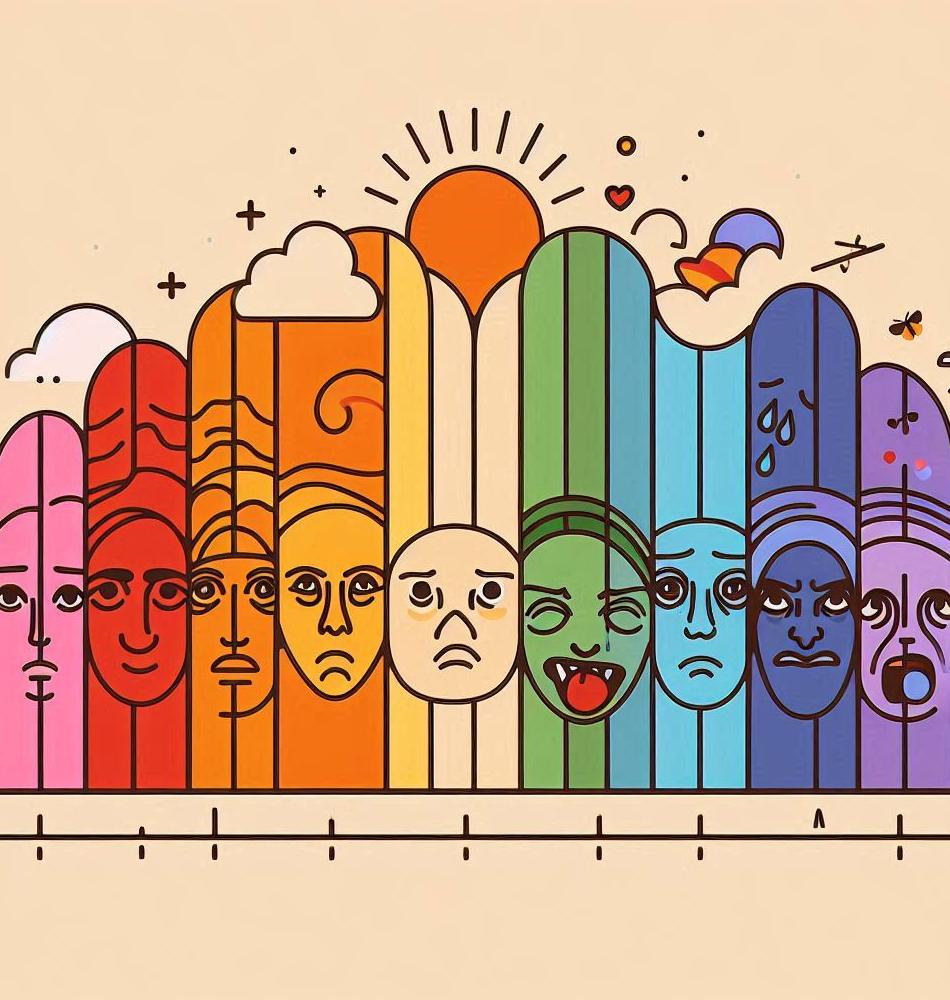When delving into the world of psychology, one may stumble upon the term "Cluster B Personality Disorders." This classification serves as a catch-all for a group of disorders characterized by dramatic, erratic, and emotional behaviors. Often misunderstood, these conditions can be challenging not only for those who experience them but also for their loved ones. In this article, we will embark on a journey to uncover the essence of Cluster B Personality Disorders, highlighting their characteristics, types, treatment options, and ways to support those affected.
The Intriguing World of Cluster B Personality Disorders ✨
Cluster B Personality Disorders include four primary disorders: Borderline Personality Disorder (BPD), Narcissistic Personality Disorder (NPD), Antisocial Personality Disorder (ASPD), and Histrionic Personality Disorder (HPD). Each brings unique traits and challenges, creating a diverse spectrum of emotional experiences.
Borderline Personality Disorder: The Emotional Fast Lane 💔
Borderline Personality Disorder is perhaps one of the most well-known and widely discussed Cluster B disorders. Characterized by intense and unstable emotions, relationships, and self-image, individuals with BPD often face challenges that can feel overwhelming.
Key Features of BPD: Breaking it Down 🔍
- Intense emotional upheavals often triggered by perceived abandonment.
- Extreme shifts in self-identity and self-esteem.
- Unstable interpersonal relationships, oscillating between idealization and devaluation.
- Impulsive behaviors that may lead to self-harm or reckless actions.
- Persistent feelings of emptiness and fear of being alone.
Narcissistic Personality Disorder: The Grand Enigma 🌟
Narcissistic Personality Disorder tends to evoke mixed feelings. While many may associate narcissism with self-importance and entitlement, the intricacies of the disorder extend beyond mere vanity.
Recognizing NPD: What to Look For ⚡
- A profound need for admiration and validation from others.
- Exaggerated sense of self-importance and accomplishments.
- Lack of empathy for others, leading to difficulty in forming healthy relationships.
- Arrogant behavior and an attitude of superiority.
- Envy of others or belief that others are envious of them.
Antisocial Personality Disorder: The Devil May Care 🦸
Individuals with Antisocial Personality Disorder often exhibit a blatant disregard for societal norms and the rights of others. This disorder poses complexities that can be difficult to comprehend.
Core Characteristics of ASPD: The Elements at Play 📉
- Persistent patterns of deceitfulness or manipulation.
- Impulsive behavior that leads to volatile situations.
- Lack of remorse for harmful actions, irrespective of the consequences.
- Engaging in behaviors that can be grounds for criminal activities.
- Difficulty sustaining long-term relationships due to self-centered behaviors.
Histrionic Personality Disorder: The Spotlight Seeker 🌟
Individuals with Histrionic Personality Disorder thrive on attention and seek to be the center of attraction in their social circles. This desire for validation can affect their relationships and self-worth.
Discerning HPD: Key Indicators 🎭
- Excessive emotionality and attention-seeking behavior.
- Constant need for approval and reassurance from others.
- Overly dramatic expressions of emotions, often perceived as insincere.
- Being easily influenced by others or circumstances.
- Adjusting physical appearance to draw attention.
Common Misconceptions About Cluster B Disorders 🤔
Understanding Cluster B Personality Disorders often comes with a set of misconceptions that can lead to stigma and judgment.
Myth vs. Fact: Clearing the Fog 🌤️
- Myth: People with these disorders are manipulative and always seek to harm others.
Fact: While some behaviors can be problematic, individuals are often struggling with their emotional experiences. - Myth: Cluster B disorders are untreatable.
Fact: Many effective treatment options exist, including therapy and medications. - Myth: Only certain traits define these disorders.
Fact: Each disorder is unique and may vary in manifestation between individuals. - Myth: Individuals with these disorders cannot lead fulfilling lives.
Fact: With proper support and treatment, many achieve stability and success.
Treatment Options: Navigating the Road to Recovery 🛤️
Seeking treatment for Cluster B Personality Disorders is crucial for optimizing well-being and fostering personal growth. These disorders can be effectively managed with various approaches.
Therapeutic Approaches: What Works? 🧠
- Dialectical Behavior Therapy (DBT): Particularly effective for BPD, focusing on emotion regulation and interpersonal effectiveness.
- Cognitive Behavioral Therapy (CBT): Useful for altering negative thought patterns associated with these disorders.
- Psychoeducation: Educating patients and families about the disorders to foster understanding and support.
- Medication: While medications alone cannot treat personality disorders, they may help alleviate associated symptoms such as anxiety and depression.
Support Systems: Building a Safety Net 🤝
Support is paramount for individuals grappling with Cluster B disorders. Friends and family can implement strategies to create a compassionate and understanding environment.
- Encourage open communication to foster trust and understanding.
- Avoid judgment, focusing instead on empathy and support.
- Help create healthy boundaries to safeguard emotional well-being.
- Suggest seeking professional help if career and personal relationships become untenable.
Frequently Asked Questions About Cluster B Personality Disorders ❓
- What are the most common symptoms of Cluster B Personality Disorders?
- How are these disorders diagnosed by mental health professionals?
- Can Cluster B Personality Disorders coexist with other mental health conditions?
- What role does trauma play in the development of these disorders?
- How can I support someone with a Cluster B Personality Disorder without enabling their behavior?
Conclusion: Embracing Complexity and Compassion 🎉
Cluster B Personality Disorders represent a deeply intricate emotional landscape filled with unique challenges and opportunities for growth. By acknowledging the complexities and misconceptions surrounding these disorders, we can foster an environment of understanding and support for those affected. Through effective treatment options and robust support systems, individuals with Cluster B disorders can work towards stability and a fulfilling life. Awareness and compassion are key in transforming our perspective of these disorders from stigma to empathy.

